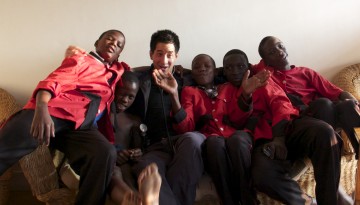Note: this project is no longer active and therefore is not recruiting new team members.
The Brighter Smiles Africa program was based initially on provision of knowledge and reinforcement of sound practices related to children’s oral health. Five years on success in improving oral health has led to each school expanding the health promotion topics to include other issues identified as relevant by the community. MUK and UBC students and faculty are responsible for developing the relevant education and health practices related to each issue identified, they then assist the school in delivery of the new initiatives, and provide on-going evaluation of their impact on individuals and the community.
Please visit the Brighter Smiles website: http://www.brightersmilesafrica.ca/
Over the years, the Brighter Smiles project has expanded its scope to also include working closely with a local NGO in Kampala: African Hearts. The collaboration has proven to be effective and sustainable and has grown in its relationship. African Hearts was started in 2001 with the aim of working with marginalized and vulnerable young people to improve their safety, physical and emotional health and future wellbeing. The Organization’s target population is children who are living on the street, orphaned, abandoned or victimized in other ways such as by family violence.
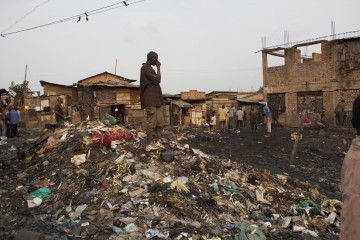 African Hearts currently runs two homes where former street children are taken care of. Children in these homes are provided with shelter, food, love, education, and the other necessities of life, and programs to re-integrate them into society. In addition, the organization assists other vulnerable children in the community, such as orphans who still live with their guardians, providing day activities at the Kampala house, counseling, health care, and scholarships to support education. With the support of Brighter Smiles, African Hearts has also built a much-needed school in the rural Ssenge area.
African Hearts currently runs two homes where former street children are taken care of. Children in these homes are provided with shelter, food, love, education, and the other necessities of life, and programs to re-integrate them into society. In addition, the organization assists other vulnerable children in the community, such as orphans who still live with their guardians, providing day activities at the Kampala house, counseling, health care, and scholarships to support education. With the support of Brighter Smiles, African Hearts has also built a much-needed school in the rural Ssenge area.
The Brighter Smiles teams started this year with visits to the slums of Kampala to better understand the conditions in which many children have to live. This provided them with a better grasp of the where many of the rescued children at the African Hearts homes have come from. In the slums, the team ran several wound care clinics for the children there that often had poorly managed infected wounds.
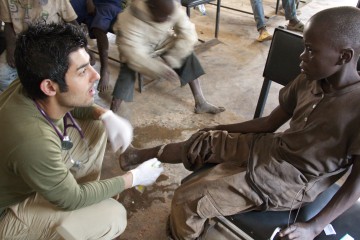 The team also supported the African Hearts organization this year through various fundraising efforts. Brighter Smiles worked with a local video and music producer to develop a music video that will be used for fundraising efforts back in Canada. Furthermore, the team attended several Rotary fellowships in Kampala and the rural town of Kalissizo to meet the local Ugandan clubs and foster international relationships with Rotary clubs back in Canada to support the African Hearts organization.
The team also supported the African Hearts organization this year through various fundraising efforts. Brighter Smiles worked with a local video and music producer to develop a music video that will be used for fundraising efforts back in Canada. Furthermore, the team attended several Rotary fellowships in Kampala and the rural town of Kalissizo to meet the local Ugandan clubs and foster international relationships with Rotary clubs back in Canada to support the African Hearts organization.
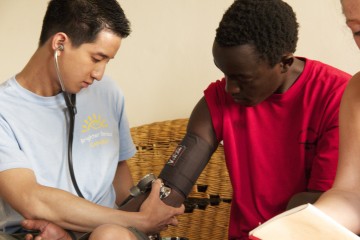 An alarming number of reports of dysuria in the African Hearts orphanage spurred the team to conduct a urinalysis and hydration study on the boys. As renal failure is a major cause of death in middle age amongst Ugandans, an investigatory urinalysis was indicated. The Brighter Smiles team evaluated the medical histories, physical examination findings, and daily fluid intake of Ugandan school children and correlated this data with analysis of their urine chemistry. In sub-Saharan African, most children have limited access to clean water, and consequently probably drink much less than those in developed countries. The purpose was to assess whether drinking additional fluid could contribute to improved renal health and therefore indicate the need for better access to clean water. The data of which is currently being assessed and written into an abstract for presentation.
An alarming number of reports of dysuria in the African Hearts orphanage spurred the team to conduct a urinalysis and hydration study on the boys. As renal failure is a major cause of death in middle age amongst Ugandans, an investigatory urinalysis was indicated. The Brighter Smiles team evaluated the medical histories, physical examination findings, and daily fluid intake of Ugandan school children and correlated this data with analysis of their urine chemistry. In sub-Saharan African, most children have limited access to clean water, and consequently probably drink much less than those in developed countries. The purpose was to assess whether drinking additional fluid could contribute to improved renal health and therefore indicate the need for better access to clean water. The data of which is currently being assessed and written into an abstract for presentation.
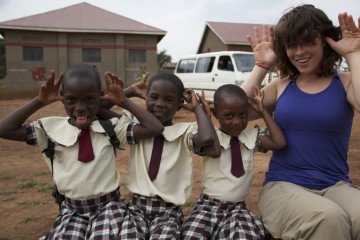 There were memorable moments in the various activities that the team was engaged in this year, but perhaps the most memorable moments was the time we spent with the boys at the African Hearts house. The team was consistently touched by the kindness of the Ugandan people, and learned what it truly meant to care for and help vulnerable children. We acted as mentors to the African Hearts boys, but in many ways, it was them who were teaching us.
There were memorable moments in the various activities that the team was engaged in this year, but perhaps the most memorable moments was the time we spent with the boys at the African Hearts house. The team was consistently touched by the kindness of the Ugandan people, and learned what it truly meant to care for and help vulnerable children. We acted as mentors to the African Hearts boys, but in many ways, it was them who were teaching us.
Faculty mentor: Dr. Andrew Macnab
